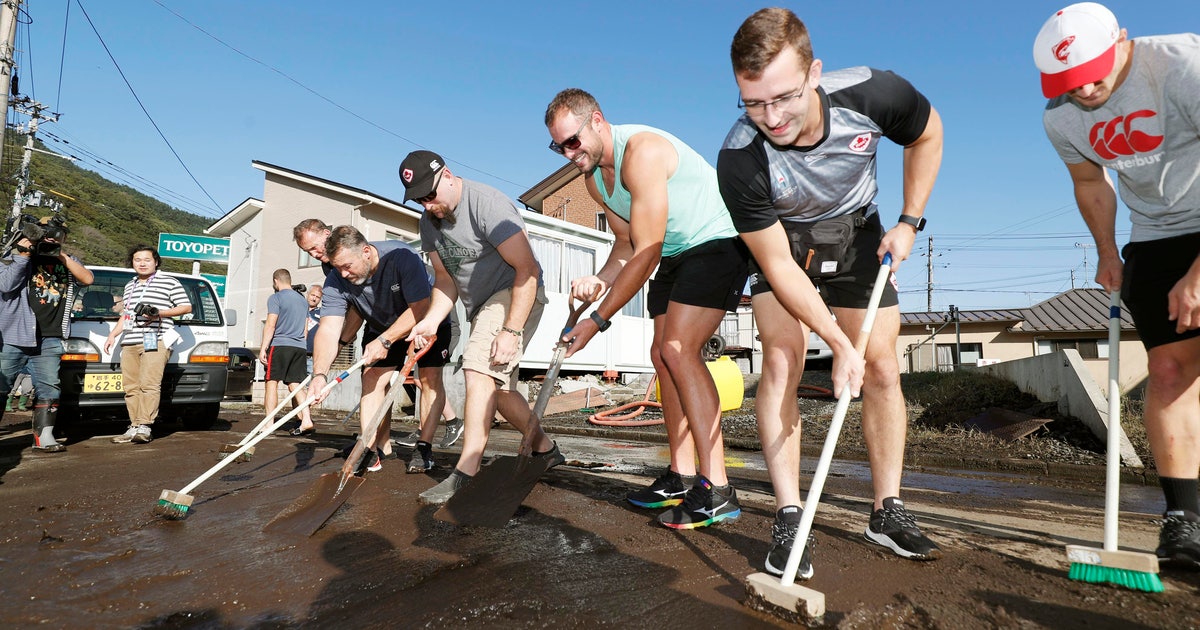1st Rugby World Cup in Asia hailed a success in group stage


TOKYO (AP) — Everyone loves a winner. And in Japan right now, that has moved rugby from the sidelines into the mainstream.
“In many ways, Japan’s victory over Scotland was for a nation, not just rugby,” World Rugby Chairman Bill Beaumont said of Japan’s progress into the World Cup quarterfinals at the end of a weekend when a destructive typhoon hit the tournament’s host country and left dozens dead.
The first Rugby World Cup staged in Asia is being hailed as a success even before kickoff in the knockout rounds. The tournament is three weekends down, and three to go.
“Never has a nation been so unified behind a (Rugby World Cup) tournament and never have we seen so many people greeting the teams at training sessions, hotels and public events,” Beaumont said as he reviewed the 40-game group stage that began with Japan beating Russia in Tokyo on Sept. 20.
World Rugby said more than 1.8 million tickets had been sold across all 48 matches, with another 864,000 fans attending dedicated fan zones set up in the major cities.
Broadcast figures have also surpassed expectations with a live peak television audience in Japan of an estimated 50 million tuning in to local Japanese network NHK’s broadcast of the hosts thrilling 28-21 victory over Scotland at Yokohama to secure Japan’s first-ever quarterfinal place last Sunday night.
Typhoon Hagibis made landfall on Saturday and left devastation in parts of the country, and forced the first ever cancellation of games — two on Saturday, and one on Sunday — at rugby’s showpiece event.
“Our thoughts and deepest sympathies continue to be with those who have been affected by Typhoon Hagibis,” Beaumont said. “We stand shoulder to shoulder with Japan.
“We owe a huge debt of gratitude to our friends in the Japan 2019 organizing committee, in the host cities, match venues and the brilliant staff and volunteers working in the most difficult circumstances to make Sunday’s matches happen for the teams and our remarkable fans, who have shown such understanding.”
Despite the best efforts of local organizers to prepare the stadiums in the aftermath of the typhoon, the match between Canada and Namibia in the city of Kamaishi was canceled at 6 a.m. local time on Sunday.
Encapsulating the spirit of the tournament and providing perhaps one of its most enduring images was the sight of both teams helping the local community with the clean-up effort. The Canadian players and support staff swept and shoveled debris on a day when they’d been expecting to finish off their tournament, hoping to give something back to the people who’d been hosting them along the way.
Baseball, soccer and sumo are sports that have the biggest following in Japan, although rugby has a long history in the country, a healthy domestic competition and seemingly a growing popularity.
“The Japanese people are the heartbeat of the tournament and have welcomed the teams and fans with open arms,” Beaumont said in a statement. “From full and vibrant stadiums and fan zones, to record social media, the fans, teams and the people of Japan have shared truly unforgettable moments of friendship, celebration and hospitality.”






